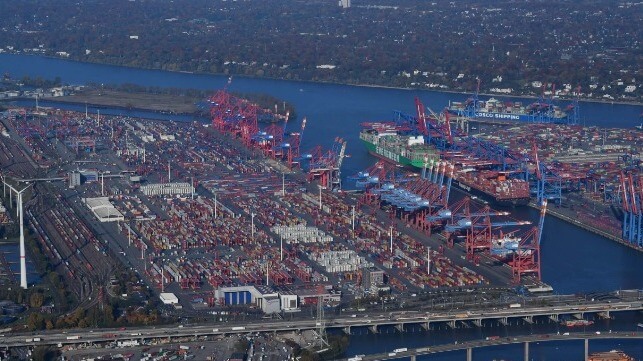EU to End Antitrust Exemption for Liner Shipping in 2024

The European Commission has decided after 15 years not to extend an exemption for carriers from the EU’s antitrust rules which had been designed to enhance services and provide shippers benefits through carrier cooperation. The decision is a major victory for shippers who had argued to the EU that the carriers have become too powerful demonstrated by the pricing and other issues during the recent surge in shipping volumes.
Lobbying groups for the carriers have consistently argued that shipping lines are required to make significant levels of investment in ships and ports and that the cooperation in the form of the alliances, known as consortia by the EU, permitted better sharing of resources. They contend that the alliances that coordinate schedules and operations lead to economies of scale and better use of space on vessels lowering costs for shippers.
The exemption for carriers from the EU antitrust rules was introduced in 2009 by the European Commission as part of an effort to end the older conference system whereby shippers agreed to minimum rates on key trade routes. Known as the Consortia Block Exemption Regulation (CBER), the commission had twice extended the exemption in 2014 and 2020. While the commission has the authority to extend the exemption for up to five years, in 2020 recognizing issues in the market they only extended it till April 25, 2024.
“This key sector has undergone significant structural changes, such as carriers’ consolidation, global alliances, and vertical integration, resulting in new market conditions, which became apparent during the coronavirus pandemic,” says Commissioner Didier Reynders, in charge of competition policy for the European Commission. “Our evaluation has shown that a dedicated block exemption for shipping lines is no longer adapted to those new market conditions.”
Shippers twice in 2021 and again in 2022 had called on the commission to begin a new review of the exemption following global trends that cited the consolidation in the shipping industry. For example, in the U.S. shippers argued successfully to the U.S. Congress that consolidation meant that a handful of carriers controlled the vast majority of capacity on key trade routes leading to the 2022 Ocean Shipping Reform Act. Similarly, shippers argued to the EC that the exemption had become detrimental citing increases in freight rates, reductions in capacity, reliability, and quality of service over the past few years.
The EC staff launched the review of the CBER in 2022 which included comments from shippers and others in the industry. They report that they also consulted with competition and regulatory authorities in Europe, the U.S., and other jurisdictions on the challenges faced by the shipping industry.
“The evidence collected from the stakeholders points towards the low or limited effectiveness and efficiency of the CBER throughout the 2020-2023 period,” the commission writes in its summary of findings.
Among the specific issues they cited in making the decision is that there was a small number of consortia falling within the scope of the CBER. They concluded that the exemption was providing limited compliance cost savings to carriers and played a secondary role in carriers' decision to cooperate. Furthermore, over the period between 2020 and 2022, they concluded the CBER was no longer enabling smaller carriers to cooperate with each other and offer alternative services in competition with larger carriers
The expiration of the CBER they noted does not mean that cooperation between shipping lines becomes unlawful under EU antitrust rules. Carriers operating to or from the EU, however, will have to comply with the broader EU antitrust rules, which do provide opportunities for cooperation.

that matters most
Get the latest maritime news delivered to your inbox daily.
“The shift to general EU antitrust rules will create a period of uncertainty as carriers adjust to the new legal structure,” said John Butler, President & CEO of the World Shipping Council in a statement released after the recommendation was issued. “Nevertheless, vessel sharing agreements will remain a fully legal and supported way for carriers to ensure efficient and sustainable transport for Europe. WSC is carefully reviewing the basis for EC’s DG COMP’s position and looks forward to further dialogue to ensure regulatory clarity.”
Some carriers have already moved to revise cooperations such as the announced plans to end the alliance between Maersk and MSC. Analysts however are questioning if other jurisdictions will follow the EU’s lead and increase their reviews of carrier alliances.
